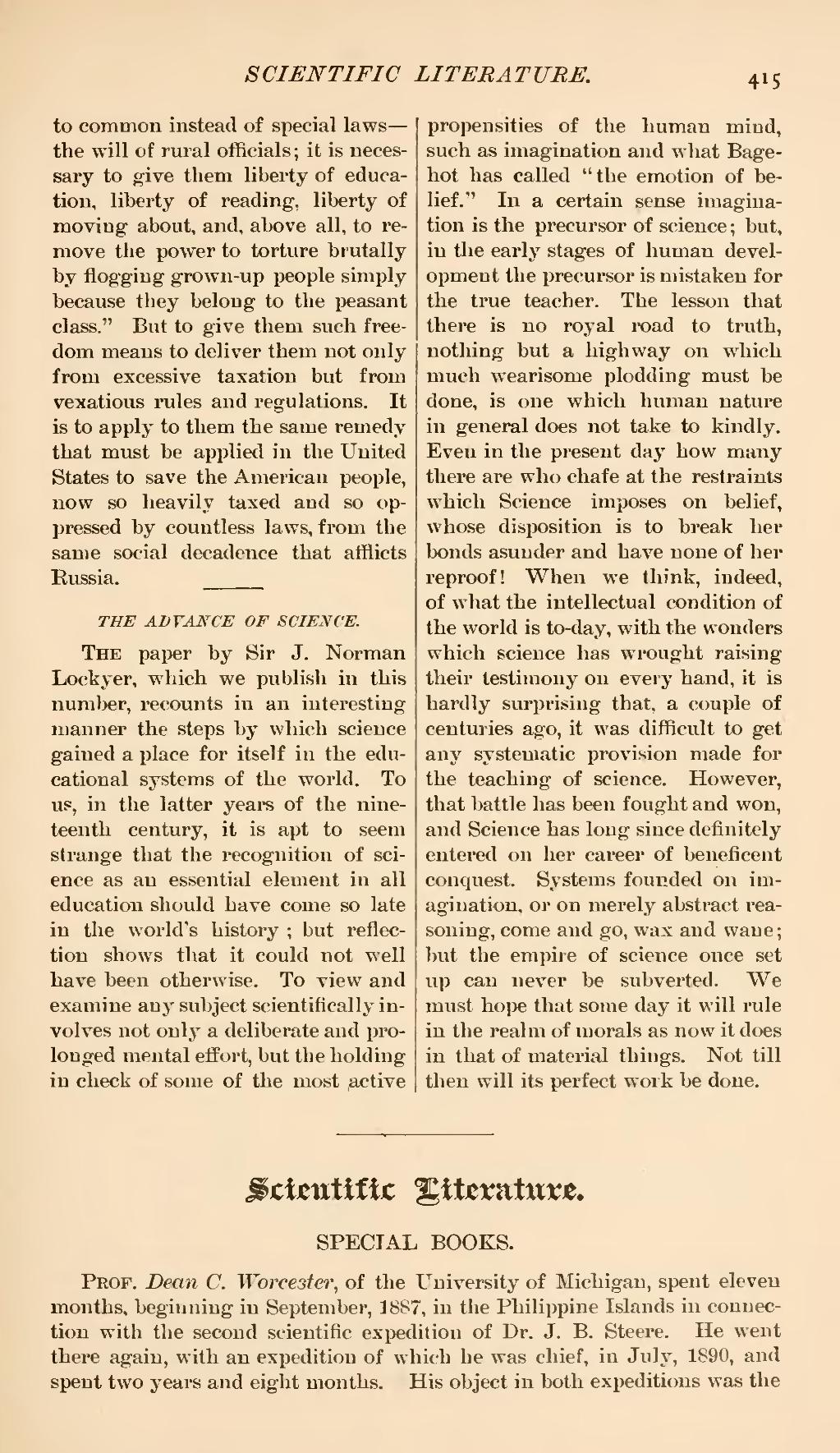to common instead of special laws—the will of rural officials; it is necessary to give them liberty of education, liberty of reading, liberty of moving about, and, above all, to remove the power to torture brutally by flogging grown-up people simply because they belong to the peasant class." But to give them such freedom means to deliver them not only from excessive taxation but from vexatious rules and regulations. It is to apply to them the same remedy that must be applied in the United States to save the American people, now so heavily taxed and so oppressed by countless laws, from the same social decadence that afflicts Russia.
THE ADVANCE OF SCIENCE.
The paper by Sir J. Norman Lockyer, which we publish in this number, recounts in an interesting manner the steps by which science gained a place for itself in the educational systems of the world. To us, in the latter years of the nineteenth century, it is apt to seem strange that the recognition of science as an essential element in all education should have come so late in the world's history; but reflection shows that it could not well have been otherwise. To view and examine any subject scientifically involves not only a deliberate and prolonged mental effort, but the holding in check of some of the most active propensities of the human mind, such as imagination and what Bagehot has called "the emotion of belief." In a certain sense imagination is the precursor of science; but, in the early stages of human development the precursor is mistaken for the true teacher. The lesson that there is no royal road to truth, nothing but a highway on which much wearisome plodding must be done, is one which human nature in general does not take to kindly. Even in the present day how many there are who chafe at the restraints which Science imposes on belief, whose disposition is to break her bonds asunder and have none of her reproof! When we think, indeed, of what the intellectual condition of the world is to-day, with the wonders which science has wrought raising their testimony on every hand, it is hardly surprising that, a couple of centuries ago, it was difficult to get any systematic provision made for the teaching of science. However, that battle has been fought and won, and Science has long since definitely entered on her career of beneficent conquest. Systems founded on imagination, or on merely abstract reasoning, come and go, wax and wane; but the empire of science once set up can never be subverted. We must hope that some day it will rule in the realm of morals as now it does in that of material things. Not till then will its perfect work be done.
SPECIAL BOOKS.
Prof. Dean C. Worcester, of the University of Michigan, spent eleven months, beginning in September, 1887, in the Philippine Islands in connection with the second scientific expedition of Dr. J. B. Steere. He went there again, with an expedition of which he was chief, in July, 1890, and spent two years and eight months. His object in both expeditions was the
